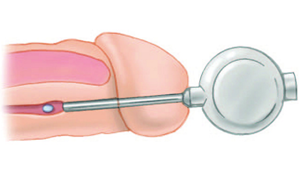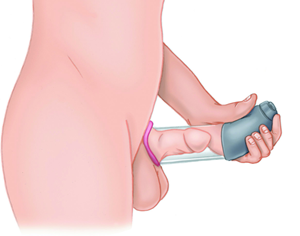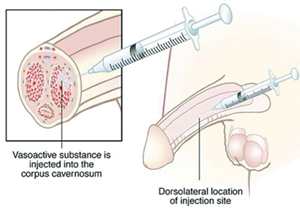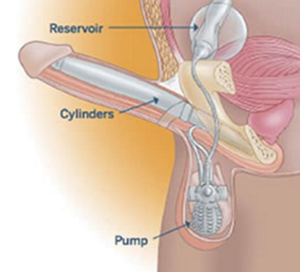Dr. Natalya Lopushnyan treats many patients suffering from erectile dysfunction. Below is an article she wrote describing erectile dysfunction treatment options.
As with all content on Greater Boston Urology's blog, the following information is educational in nature, not medical advice. Always talk to your physician about your specific questions concerning erectile dysfunction.
[Editor's note: This article was reviewed and updated on 11/3/21.]
And now, here's Dr. Lopushnyan in her own words…
Let's talk about erections, or lack thereof. If you are a man and you are having difficulty with erections, know that you are not alone.
- There are about 18 million men in the US suffering from ED.
- The rate of ED triples between the ages of 40 and 65.
But what is the science behind an erection? And why do they sometimes fail?
What is an Erection?
You need at least three healthy things for an erection: a penis, blood vessels, and nerves. The most simplistic explanation of an erection is that nerves send signals to the blood vessels to deliver more blood to the penis. Then, spongy (erectile) tissue of the penis (corpus cavernosum) gets filled with blood and an erection occurs. If any of the above components are not functioning well, erection may not happen.
What Causes Erectile Dysfunction (ED)?
Risk of ED is higher if you have high blood pressure, diabetes, vascular disease, low testosterone, history of prostate surgery, or take certain medications. Stress and other psychological aspects can sometimes play a role.
But the main risk for having ED is age. Yes, unfortunately, the older you are, the more likely you are to have ED. You cannot be 67 and have a 21-year-old penis.
What Are ED Treatment Options?
So, what are the options for a man with ED? Well, there are a few. Usually the first option we (urologists and primary care doctors) will try are medications like Viagra, Cialis, Levitra, etc. All those medications function by bringing more blood flow to the penis. They are all pretty similar in their action, and if one of them works for you, chances are the others will, too. Some men will experience side effects, most common being facial flushing.
If medications do not work, we would discuss either penis injections or the vacuum pump. There is also something called MUSE, which is basically a small medication pellet that gets inserted inside the urethra (the tube that transports urine) and releases medication directly into the penis. Some men prefer it, as it may be a bit more effective than oral medications, but some will complain of pain and burning with insertion.
A vacuum device is exactly what it sounds like: a tube that brings blood into the penis. You keep the erection by using a penis ring at the base of the penis.
Injections work quite well for most men, but not everyone is willing to stick a needle into one's penis. Most of my patients actually do quite well after a teaching session that we do in the office. It also helps that the needle is tiny and the part of the penis where you have to inject does not generally hurt.
If nothing else works (or if these other options don't fit into the patient's lifestyle), there is always a penile implant. A penile implant (or Inflatable Penile Prosthesis – IPP, as most urologists call it) is a hydraulic device that gets implanted into the penis and replaces the erectile tissue with two cylinders. There is a little pump that gets placed into the scrotum, next to the testicles (not into the testicles) to inflate and deflate the device.
Because it is a hydraulic device, it can give you the hardest erection possible. IPPs have high satisfaction rates among patients AND their partners. (Read this first-hand account from a happy patient.) And once you are done having sex, you push the button in the scrotum and it deflates.
Illustrations of Erectile Dysfunction Treatment Options
Check out the illustrations below for further insight into various ED treatments.
|
MUSE intraurethral suppository
|
Vacuum erection device (VED)
|
|
Penile injections
|
Inflatable penile prosthesis (IPP)
|
If you have questions about erectile dysfunction or another urologic issue, consider scheduling an appointment.
Watch: Got Erectile Dysfunction? You're Not Alone.




